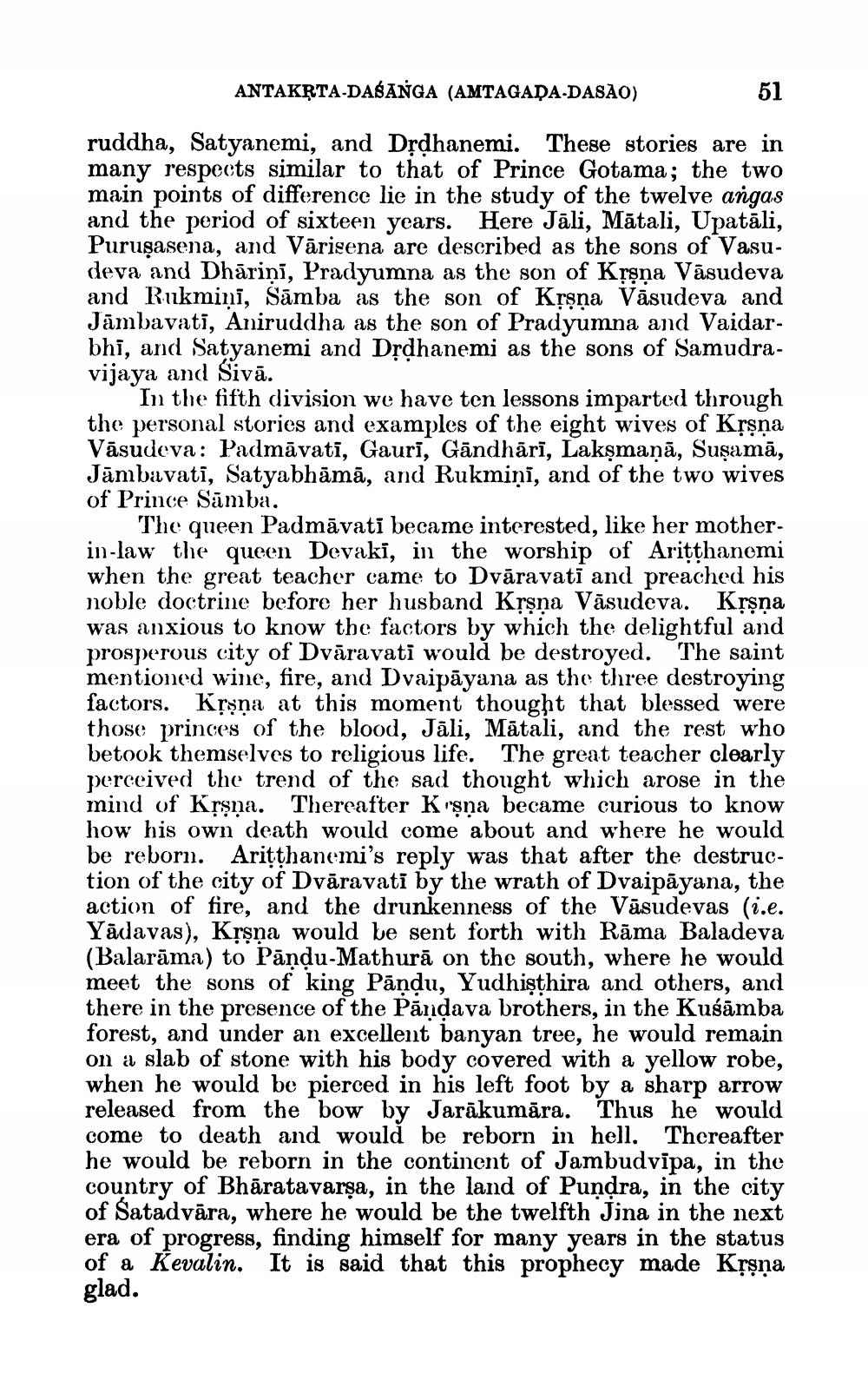________________
ANTAKṚTA-DASANGA (AMTAGADA-DASAO)
ruddha, Satyanemi, and Dṛdhanemi. These stories are in many respects similar to that of Prince Gotama; the two main points of difference lie in the study of the twelve angas and the period of sixteen years. Here Jāli, Mātali, Upatāli, Purusasena, and Varisena are described as the sons of Vasudeva and Dhariņi, Pradyumna as the son of Kṛṣṇa Vasudeva and Rukmini, Samba as the son of Kṛṣṇa Vasudeva and Jambavati, Aniruddha as the son of Pradyumna and Vaidarbhi, and Satyanemi and Drḍhanemi as the sons of Samudravijaya and Siva.
In the fifth division we have ten lessons imparted through the personal stories and examples of the eight wives of Kṛṣṇa Vasudeva: Padmavati, Gaurī, Gāndhārī, Lakṣmaṇā, Suṣamā, Jambavati, Satyabhāmā, and Rukmini, and of the two wives of Prince Samba.
51
The queen Padmavati became interested, like her motherin-law the queen Devaki, in the worship of Ariṭṭhanemi when the great teacher came to Dvaravatī and preached his noble doctrine before her husband Kṛṣṇa Vasudeva. Kṛṣṇa was anxious to know the factors by which the delightful and prosperous city of Dvaravati would be destroyed. The saint mentioned wine, fire, and Dvaipayana as the three destroying factors. Kṛṣṇa at this moment thought that blessed were those princes of the blood, Jali, Matali, and the rest who betook themselves to religious life. The great teacher clearly perceived the trend of the sad thought which arose in the mind of Krsna. Thereafter Krsna became curious to know how his own death would come about and where he would be reborn. Ariṭṭhanemi's reply was that after the destruction of the city of Dvaravati by the wrath of Dvaipayana, the action of fire, and the drunkenness of the Vasudevas (i.e. Yadavas), Kṛṣṇa would be sent forth with Rama Baladeva (Balarama) to Pandu-Mathura on the south, where he would meet the sons of king Pāṇḍu, Yudhisthira and others, and there in the presence of the Pandava brothers, in the Kusamba forest, and under an excellent banyan tree, he would remain on a slab of stone with his body covered with a yellow robe, when he would be pierced in his left foot by a sharp arrow released from the bow by Jarākumāra. Thus he would come to death and would be reborn in hell. Thereafter he would be reborn in the continent of Jambudvipa, in the country of Bharatavarṣa, in the land of Pundra, in the city of Satadvāra, where he would be the twelfth Jina in the next era of progress, finding himself for many years in the status of a Kevalin. It is said that this prophecy made Kṛṣṇa glad.




